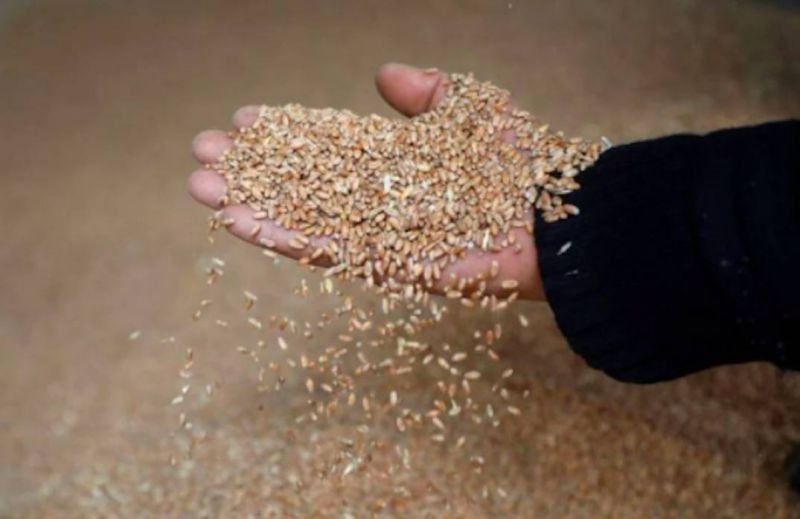
A worker inspects wheat grain in a Beirut flour mill, March 1, 2022. (Credit: Mohamed Azakir/Reuters)
BEIRUT — The impact of the Ukraine conflict will exacerbate an already dire humanitarian situation in Lebanon, potentially prompting further political destabilization, hampering economic recovery, and driving many more into dependence on humanitarian assistance, the international NGO Mercy Corps cautioned in a report published this week, estimating that the price of a 20-liter tank of fuel alone could hit almost LL1 million next month. The warning comes as the Lebanese government struggles to mitigate what the report describes as “one of the largest economic contractions in history.”
Here’s what we know:
• The report draws attention to the raft of risks Lebanon now faces, among them a short-term wheat stock supply crisis, a hike in the prices of essential commodities, short-term hoarding of necessities and renewed black market activity, higher import costs and a further reduction in the quality of critical services, such as the provision of electricity, internet, and water.
• The report highlights that, according to Food and Agriculture Organization and Lebanese customs data, Lebanon sourced 81.2 percent of its wheat from Ukraine in 2020. Lebanon now “holds an estimated six to eight weeks supply of wheat,” it goes on, citing statements by Lebanese officials and noting that the government is attempting to salvage the situation by “promising direct action,” including officials lobbying other governments for support in accessing reliable grain supplies. On Tuesday, Economy Minister Amin Salam announced plans for a tender to import 50,000 of wheat from India; however, he added that the execution of such a tender requires a credit line of $26 million from Lebanon’s central bank.
• The report also draws attention to the impact of soaring global oil prices, which have reached “as high as USD 139 per barrel,” on the cost of fuel in Lebanon. Mercy Corps estimates that in the event of a 10 percent weekly increase in diesel prices, compounded by a weekly 5 percent depreciation in the value of Lebanon’s national currency, the cost of 20 liters of diesel will reach almost LL1 million in April, up from approximately LL400,000 in January. Such a price increase, the report points out, will have a knock on effect on prices of goods and services, driving further inflation.
• The document also raises concerns on instability in the currency markets, with the lira’s exchange rate on the parallel market dropping to LL23,000 to the US dollar on March 9 after Banque du Liban’s intervention in the market had stabilized at around LL20,000 for much of the previous six weeks. The report adds that the drain on foreign exchange in the market “will place increasing pressure on the central bank’s recent, albeit tenuous, stabilization of the currency, and will accelerate the reduction of Lebanon’s current foreign exchange reserves, in turn risking a broader collapse.”
• Furthermore, the Ukrainian conflict will negatively impact humanitarian aid sent to Lebanon, Mercy Corps says, as it will place pressure “on global humanitarian and development assistance budgets, as many countries scale up support for Ukraine in the context of a major conflict and associated refugee crisis.”